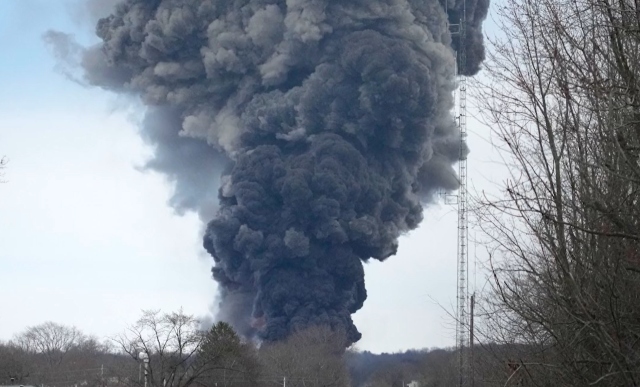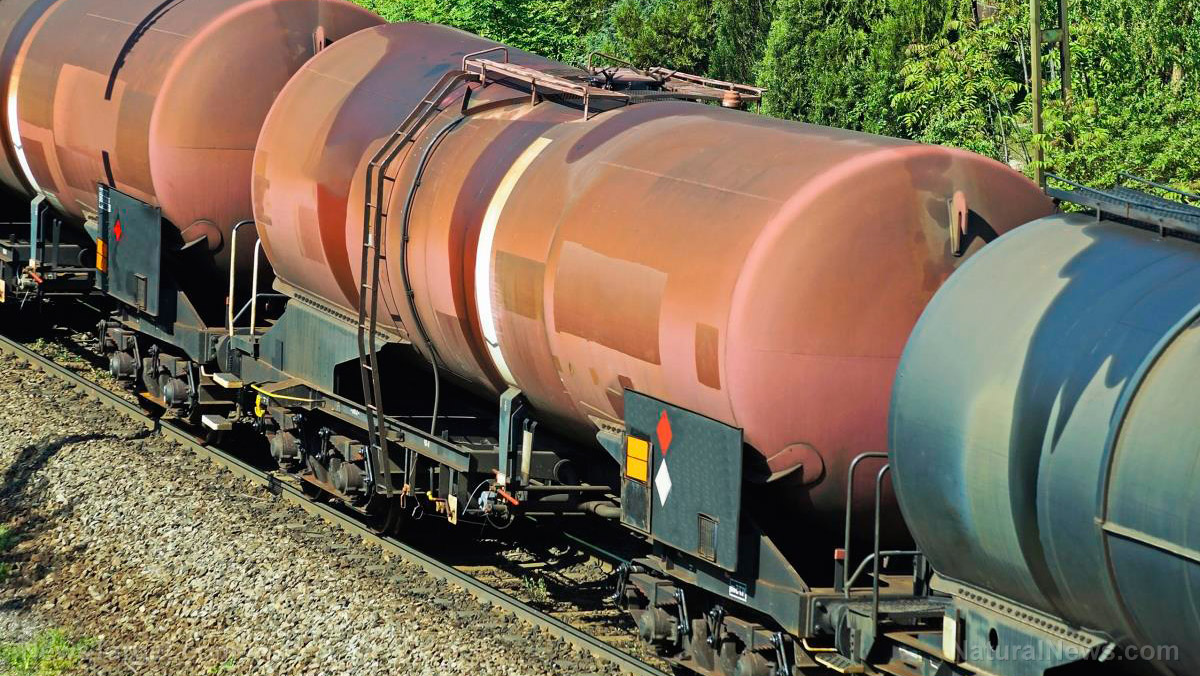Scientific report shows that East Palestine air has “higher than normal” concentrations of NINE toxic chemicals
03/02/2023 / By Ethan Huff

Experts from Texas A&M University and Carnegie Mellon University say that the air quality in and around East Palestine, Ohio, is poor, containing “higher than normal” concentrations of as many as nine different harmful chemicals.
Using their own mobile testing unit, the scientists have been collecting air samples near the site of the Norfolk Southern train crash. Meanwhile, the Environmental Protection Agency (EPA) continues to reassure the public that East Palestine is safe.
While the nine detected chemicals are not necessarily an “immediate health concern,” the experts warn that repeated and continued exposure to them over a prolonged period of time could damage people’s health.
What we know now is that in additional to vinyl chloride, the other chemicals on the derailed train that underwent a “controlled explosion” include butyl acrylate, benzene residue, glycol monobutyl ether, ethylhexyl acrylate, and isobutylene. The toxic byproducts of these chemicals when burned are numerous.
“That material that’s dumped onto the ground or into the water could reemit from the ground whenever the temperature changes or whenever it’s windy,” said Dr. Albert Presto, an associate research professor of mechanical engineering at Carnegie Mellon’s Wilton E. Scott Institute for Energy Innovation and one of the experts monitoring air quality in East Palestine.
“It’s not elevated to the point where it’s necessarily like an immediate ‘evacuate the building’ health concern. But we don’t know necessarily what the long-term risk is or how long that concentration that causes that risk will persist.”
(Related: Animals are reportedly dying at state parks across Ohio ever since the disaster.)
Independent scientists say East Palestine air quality is polluted; EPA says everything is just fine
The mobile testing van that is collecting air samples has traveled all around the region, including in Pittsburgh and even Baltimore. The experts then compared these samples to those collected in and around East Palestine to compare and contrast.
At the same time, the EPA has only screened the air inside 578 homes, declaring its chemical pollution levels to be below what is considered “safe” in terms of residential air quality standards.
The most concerning chemical detected was actually acrolein, which is either a clear, colorless gas or a pale, yellow, strong-smelling liquid. It easily evaporates at room temperature, producing toxic concentrations of the chemical.
“It is poisonous no matter what the exposure route is,” one report explains. “It causes inflammation and irritation of the skin, respiratory tract and mucus membranes.”
“After it is inhaled, it can cause delayed pulmonary edema – excess fluid in the lungs … This can lead to coughs, chest pain and fatigue … It is formed when fossil fuels are burnt and is also a by-product of fires.”
The other eight chemicals detected include benzene, vinyl chloride, butadiene, naphthalene, o-Xylene, trichloroethylene, trichloroethane and butadiene.
The International Agency for Research on Cancer (IARC) classifies vinyl chloride as carcinogenic to humans, meaning it causes cancer. Prolonged exposure to vinyl chloride over many years is likely to induce liver damage and cancer.
In addition to being breathable as a toxic gas, vinyl chloride can also be ingested via contaminated drinking water. This remains a concern throughout Ohio, and really anywhere that relies on drinking water potentially contaminated by the explosion.
“A five-minute exposure to over twice the level it can be smelt at can cause dizziness,” reports explain. “At levels five times that high, exposure can cause drowsiness, a loss of coordination, issues with sight and hearing, disorientation, nausea, headache, and burning or tingling in the arms and legs.”
The latest news about the situation in East Palestine can be found at Disaster.news.
Sources for this article include:
Submit a correction >>
Tagged Under:
big government, clean air, clean water, deception, dioxins, disaster, East Palestine, ecology, environment, EPA, national security, plume, poisons, real investigations, smoke, toxic chemicals, toxins
This article may contain statements that reflect the opinion of the author
RECENT NEWS & ARTICLES
COPYRIGHT © 2017 NATIONAL SECURITY NEWS





















